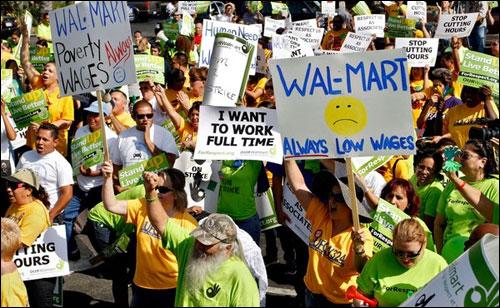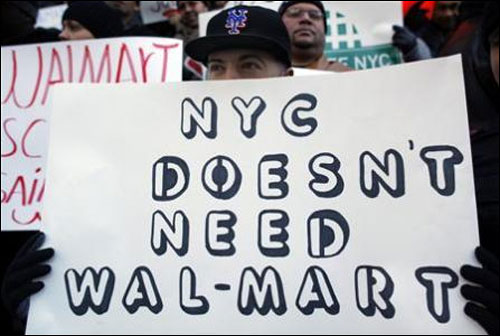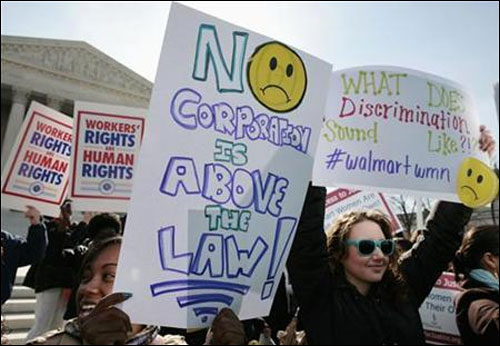 | « Back to article | Print this article |
The Walmart protests that India ignored
Walmart is huge. It has 10,300 stores in 27 countries and net sales of $449.3 billion in the fiscal ended January 2012, which is bigger than the 2011 gross domestic product of Singapore and Vietnam taken together.
Among others, it is Walmart's humongous size that has sparked the debate about whether the Bentonville, Arkansas-headquartered firm's Indian arrival will do more harm than good.
Without a doubt, it is a crucial question that must be answered, particularly given the fervour with which certain political parties have defended the cause of India's small farmers and traders, while opposing big retail.
Click on NEXT for more...
The Walmart protests that India ignored
And that is exactly why it is hugely surprising that no one - especially those who stood before television cameras FDI in multi-brand retail - has drawn attention to workers protests that have erupted across Walmart stores in the United States.
With 2.2 million employees (a little less than Mongolia's 2.8 million population) worldwide, Walmart is among the world's largest private employers - and with workers across 28 stores in 12 states joining the protest, according to the New York Times, right before the crucial holiday season, there are perhaps some questions that need to be asked in India.
Click on NEXT for more...
The Walmart protests that India ignored
The major contention has been about Walmart's unfair labour practices, with protestors demanding a minimum wage of $13 per hour and full-time jobs for those workers who want it.
Dan Hindman, a Walmart employee who works about 25 hours wants to clock in more time on the floor, to help cover expenses, including thousands of dollars for his son's asthma treatment, Reuters reported.
"I can't pay the bills because I don't have enough hours to pay the bills," said Hindman, who wants to work full-time.
Organisation United for Respect at Walmart, or OUR Walmart, which has been pushing for reforms since June 2011, also wants "predictable work schedules" and "affordable health".
Click on NEXT for more...
The Walmart protests that India ignored
A history of trouble
But labour issues at Walmart are nothing new. In May 2012, the retailer had to pay $4.8 million in back wages and damages for denying overtime to employees between 2004 and 2007, the WSJ reported.
Four years ago, in 2008, Walmart had to shell out $352 million to settle 63 law suits, which alleged that workers hadn't been allowed proper rest or meal breaks.
Click on NEXT for more...
The Walmart protests that India ignored
In China, too, Walmart had been pressurised by labour unions to increase wages by 8 per cent for 2008 and 2009, along with providing social security, paid vacation and overtime, the Huffington Post reported.
Yet, Walmart's backers and critics in India alike have remained curiously silent.
Either they chose not to react or, more dangerously, did not even know. Neither is a good enough excuse when the world's largest retailer is knocking at your door.





